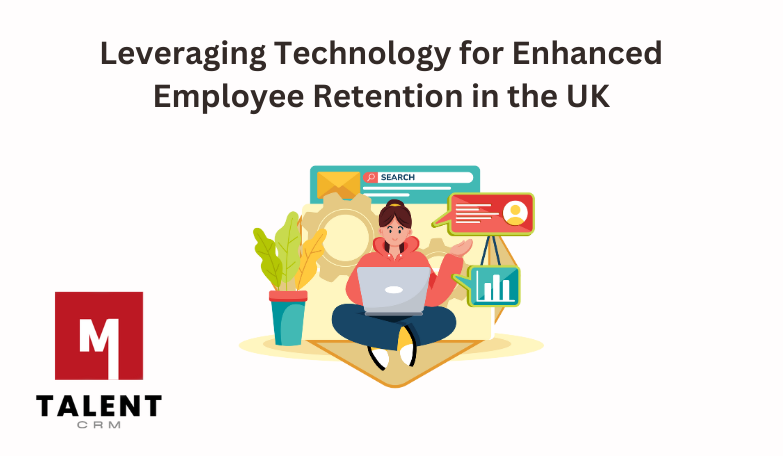Key Trends and Updates for UK Employers
Staying informed about the latest trends and developments in the recruitment industry is crucial for UK employers. The recruitment landscape is continually evolving, influenced by economic shifts, technological advancements, and changing candidate expectations. This post highlights the most recent news and trends in recruitment that UK employers should be aware of to stay ahead in the competitive job market.
Rise of Remote and Hybrid Work Models
Flexible Work Arrangements: The demand for remote and hybrid work models continues to grow. Many companies are now offering flexible work arrangements as a standard benefit to attract top talent.
Technological Advancements: The adoption of remote work technologies, such as collaboration tools and virtual meeting platforms, has become essential for maintaining productivity and employee engagement.
Impact on Recruitment:
Broader Talent Pool: Employers can now tap into a wider talent pool, including candidates who are not geographically close to the office.
Enhanced Employer Branding: Companies that offer flexible work options are seen as more attractive to potential candidates, enhancing their employer brand.
Focus on Employee Well-Being
Mental Health Initiatives: There is a growing emphasis on mental health support in the workplace. Employers are introducing wellness programs, providing access to mental health resources, and promoting work-life balance.
Well-Being Metrics: Companies are starting to track well-being metrics alongside traditional performance indicators to ensure a holistic approach to employee satisfaction and productivity.
Impact on Recruitment:
Attracting Top Talent: A strong focus on employee well-being can make a company more attractive to potential candidates who value a supportive work environment.
Retention: Investing in employee well-being can lead to higher retention rates, as employees are more likely to stay with companies that care about their mental and physical health.
Increased Use of Artificial Intelligence (AI) in Recruitment
AI-Powered Screening: AI tools are being used to automate the screening process, quickly identifying the best candidates based on predefined criteria.
Predictive Analytics: AI-driven predictive analytics help recruiters forecast hiring needs and identify potential talent gaps.
Impact on Recruitment:
Efficiency: AI can significantly reduce the time spent on manual screening, allowing recruiters to focus on more strategic tasks.
Fairness: Properly implemented AI tools can help reduce unconscious bias in the hiring process by focusing on objective data.
Emphasis on Diversity, Equity, and Inclusion (DEI)
DEI Strategies: Companies are increasingly implementing DEI strategies to create more inclusive workplaces. This includes bias training, diverse hiring practices, and transparent DEI metrics.
Inclusive Job Descriptions: Employers are crafting job descriptions that use inclusive language to attract a diverse range of candidates.
Impact on Recruitment:
Attracting Diverse Talent: A strong commitment to DEI can attract candidates from diverse backgrounds, enriching the workplace with varied perspectives and experiences.
Enhanced Reputation: Companies known for their DEI efforts are often viewed more favorably by potential candidates and customers.
Economic Recovery and Job Market Trends
Post-Pandemic Recovery: The UK job market is showing signs of recovery post-pandemic, with increasing job vacancies in various sectors, especially in healthcare, technology, and logistics.
Skill Shortages: Despite the recovery, skill shortages remain a challenge in certain industries. Employers need to focus on upskilling and reskilling their workforce to bridge the gap.
Impact on Recruitment:
Competitive Hiring: The competition for top talent is fierce, making it crucial for employers to offer competitive salaries, benefits, and career development opportunities.
Focus on Training: Investing in training programs can help employers address skill shortages and prepare their workforce for future demands.
Regulatory Changes
Right to Work Checks: Changes to right to work checks, including the continued use of digital verification methods, have streamlined the hiring process for remote and international employees.
Brexit Implications: Post-Brexit immigration rules continue to impact recruitment, with employers needing to navigate the points-based immigration system to hire international talent.
Impact on Recruitment:
Compliance: Staying compliant with the latest regulations is essential to avoid legal issues and ensure a smooth hiring process.
International Talent: Employers must adapt their recruitment strategies to attract and retain international talent within the new regulatory framework.
Conclusion Staying abreast of the latest recruitment trends and news is essential for UK employers looking to attract and retain top talent. By embracing remote and hybrid work models, focusing on employee well-being, leveraging AI, prioritizing DEI, and adapting to economic and regulatory changes, businesses can enhance their recruitment strategies and remain competitive in the evolving job market.
For more updates and insights on recruitment trends, follow our blog.



